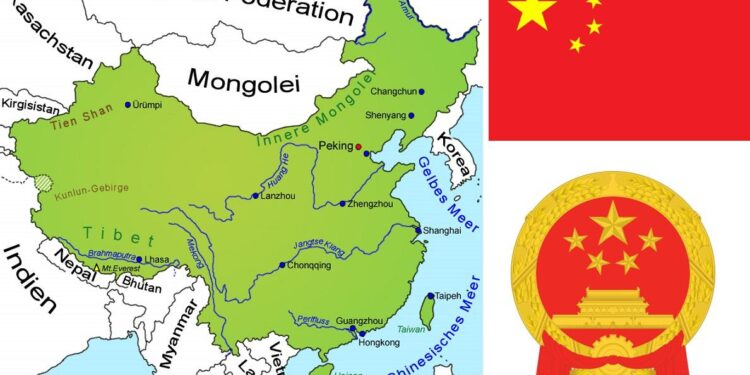Title: Emerging China-Bangladesh-Pakistan Alliance Challenges India and U.S. Indo-Pacific Strategy: What Lies Ahead for Washington and Delhi?
In today’s swiftly shifting geopolitical environment, the Indo-Pacific region is witnessing a significant transformation marked by the strengthening strategic partnership among China, Bangladesh, and Pakistan. This newly formed alliance not only complicates India’s regional ambitions but also disrupts the United States’ long-standing efforts to maintain influence in this critical area of global power rivalry. As China expands its footprint alongside its South Asian partners, New Delhi confronts pressing security concerns and strategic dilemmas that could reshape regional stability. Concurrently, Washington faces mounting pressure to adapt its policies to preserve a favorable balance of power amid these evolving tensions. This analysis delves into the implications of this trilateral coalition and explores potential policy responses from both India and the U.S., set against an increasingly interconnected global backdrop.
Strategic Implications of the China-Bangladesh-Pakistan Alliance in Indo-Pacific Geopolitics
The alliance between China, Bangladesh, and Pakistan represents a complex challenge that threatens to alter power equations across South Asia and beyond. By intertwining their military capabilities with expanding economic cooperation, these nations are positioning themselves as a formidable counterweight to India’s growing influence—a development that deeply concerns New Delhi as it strives for regional leadership.
This coalition leverages several strategic advantages:
- Military Synergy: Coordinated defense exercises coupled with arms trade agreements aim at bolstering collective deterrence against Indian military initiatives.
- Economic Integration: Collaborative infrastructure projects echoing elements of China’s Belt and Road Initiative (BRI), enhancing connectivity between South Asia and international markets.
- Geostrategic Positioning: Utilizing Bangladesh’s pivotal location along the Bay of Bengal enables expanded Chinese naval presence in key maritime corridors vital for trade routes.
Beyond challenging India directly, this tripartite partnership also undermines U.S.-led strategies designed around alliances with democratic states like India to check Beijing’s assertiveness. Consequently, Washington may need to rethink its approach—potentially by increasing defense support for New Delhi or intensifying security dialogues with ASEAN members such as Indonesia or Malaysia—to counterbalance this emerging bloc effectively.
Key prospective measures from both Washington and New Delhi include:
| Tactical Approach | Description |
|---|---|
| Alliance Reinforcement | Cultivating stronger defense collaborations alongside economic partnerships within regional frameworks. |
| Military Preparedness Enhancement | Expanding joint training programs while upgrading indigenous military technologies aimed at deterring adversarial advances. |
| Diplomatic Outreach Expansion | Pursuing dialogue channels especially targeting Bangladesh to diversify partnerships beyond traditional alignments. |
India at a Crossroads: Balancing Security Concerns with Diplomatic Engagement Amid Regional Shifts
India now faces an intricate geopolitical puzzle due to deepening ties among China, Bangladesh, and Pakistan—partners whose combined strength challenges India’s territorial integrity as well as broader strategic interests. The alliance complicates India’s border security calculus while simultaneously demanding nuanced diplomatic efforts aimed at isolating or mitigating Beijing’s expanding reach through Islamabad-Dhaka collaboration.
To address these multifaceted threats effectively:
- Diversification of Partnerships: Strengthening relations not only with traditional allies like Japan but also exploring deeper engagement within ASEAN countries can help build a more resilient network capable of offsetting adversarial coalitions.
- Evolving Quad Dynamics: Enhancing cooperation within the Quadrilateral Security Dialogue (Quad) framework—including Australia—can provide collective leverage over shared challenges posed by China’s maritime ambitions linked through Bangladeshi ports such as Chattogram.
Additionally, domestic factors including robust economic growth projections—India is expected by IMF forecasts in 2024-25 to maintain GDP growth above 6%—and political stability will be crucial determinants shaping how decisively New Delhi can respond on multiple fronts.
Washington’s Adaptive Strategy: Bolstering Alliances Across Indo-Pacific Frontiers
Confronted by this evolving trilateral axis challenging established norms in South Asia’s geopolitics—and consequently U.S.’ position—the Biden administration has prioritized reinforcing existing alliances while seeking new avenues for collaboration throughout Southeast Asia.
Core components underpinning America’s recalibrated strategy include:
- Tactical Military Collaboration: Expanding joint drills such as Malabar exercises involving India-Japan-U.S.-Australia; accelerating arms transfers including advanced missile systems tailored for Indian forces;
- Economic Diplomacy Initiatives: Promoting technology-sharing agreements alongside investment facilitation programs designed explicitly to offer alternatives countering BRI projects;
- < li >< strong > Intelligence Integration : Establishing real-time data sharing platforms among allied navies enhances situational awareness across contested maritime zones .
Furthermore , diplomatic outreach extends toward ASEAN nations wary about China’s growing footprint — countries like Vietnam , Philippines , Malaysia — where multilateral forums serve both conflict prevention purposes & foster cooperative development agendas .
Highlighted initiatives exemplify these efforts :
| Program Name | Primary Goal | < / tr >
|---|---|














